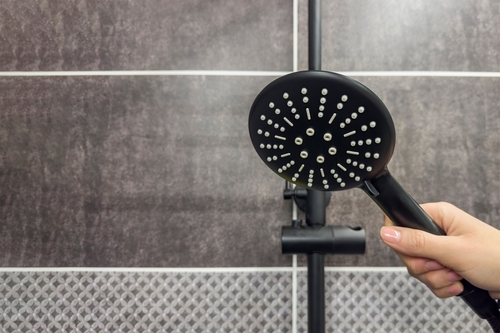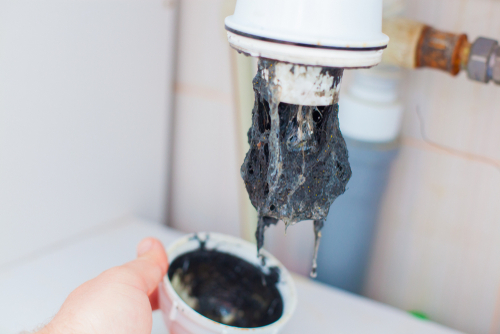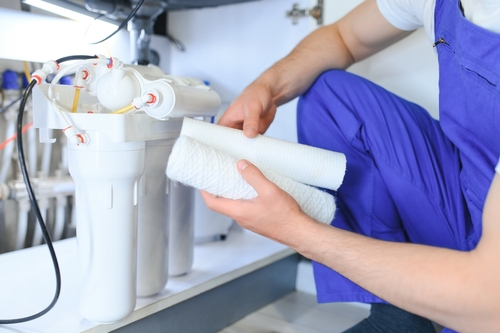
Why Your Toilet Is Not Flushing Fully
September 28, 2022
8 Warning Signs That Your Pipes Need To Be Replaced
October 30, 2022What Should You Not Flush Down The Toilet

What should you not flush down the toilet? Modern conveniences like toilets take handling human waste. But unless you flush some everyday items down the toilet instead of putting them inside the trash. Some things can pile up drain pipes, make the water system dirty, cause clogs, or even cause pollution.
Tell your kids to use the toilet in the right way. There are some things you should never put down the toilet so that everything works well. Make them understand that changing the way users act will reduce the amount of harmful and possibly damaging chemicals.
Other objects that get into the water and affect ocean life can be prevented if we are responsible enough.
Things you must never flush down the toilet
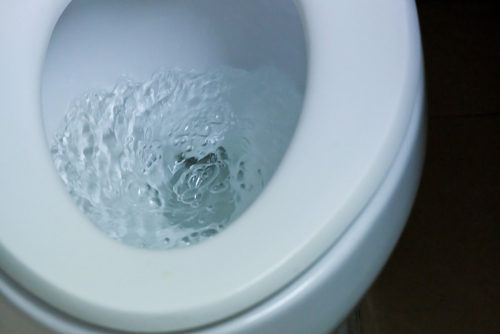
1. Pads and Tampons
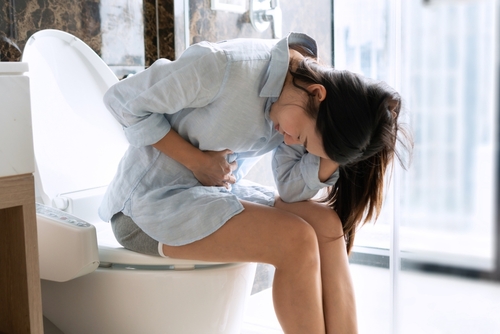
Women have always had trouble getting rid of their sanitary products. But flushing pads into the toilet can also cause plumbing problems because they can quickly block the pipes. Wrap your sanitary products in toilet paper, and place them in the proper place or the trash can.
2. Baby Wipes
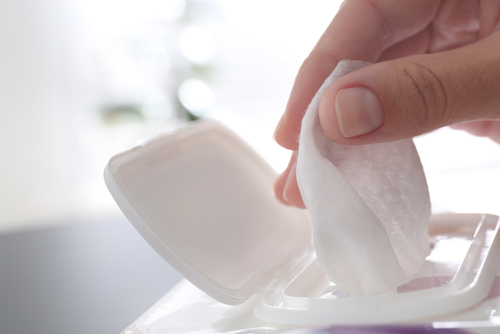
Not a lot of people realize how significant this is. They’re soft, delicate, and smooth, but these don’t disintegrate like toilet paper. Never flush down toilet baby wipes, even if they claim to be flushable. These are familiar sources of plumbing problems and should be put in the trash to avoid clogging.
3. Diapers
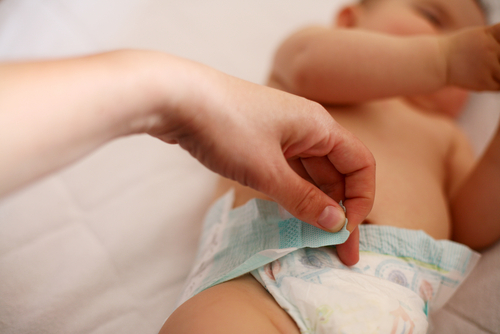
Unfortunately, some people still throw and flush diapers in the toilet. Those who engage in such behavior are guaranteed to cause a clogged toilet. Diapers don’t decompose in water and may result in costly health risks because they are designed to absorb water. Worse yet, the materials used to make current infant diapers expand when wet. Use a diaper pail to dispose of used diapers.
4. Tissues and Paper Towels
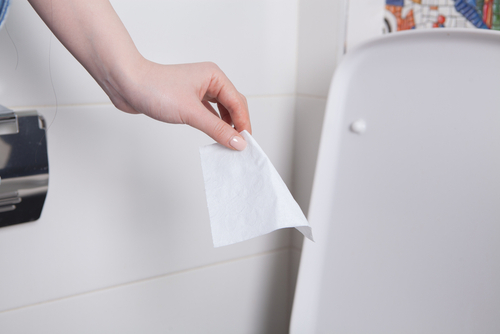
Tissues and paper towels may seem similar to toilet paper. However, they are not made to biodegrade. If you must use something other than toilet paper, such as tissues or paper towels, please never flush them. Throw them away in the trash can to avoid plumbing problems.
5. Cat Litter
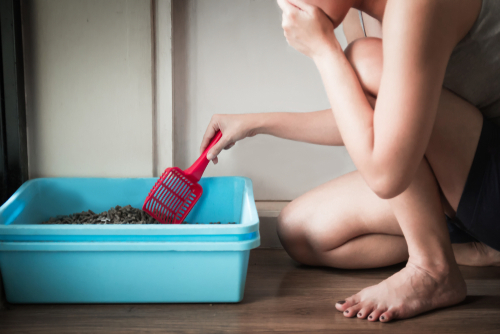
While some types of cat litter advertise that they are flushable, it is not advisable to flush the toilet. Most modern toilets don’t use nearly enough water to flush the litter down the drain effectively.
Do not flush down the toilet a kitty litter, even if the box says it’s okay to flush. It does nothing but contaminates the water further, making it more difficult to purify. You shouldn’t flush your cat’s feces from the litter box since the litter dries out the waste. The toilets are designed to discharge water-soluble waste.
6. Cotton Balls
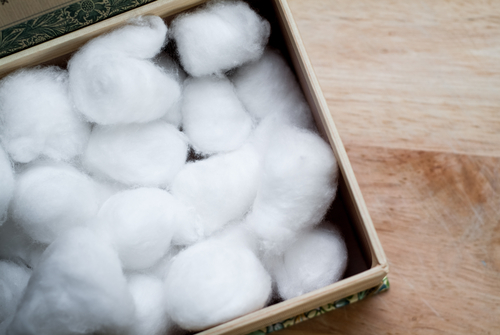
Even though items like cotton rounds or cotton balls are quite little, they can cause damage to your plumbing system. These cotton items do not dissolve in water and cause blockages in plumbing when flushed down the toilet. So, avoid flushing cotton balls since they can cause clogs and even pipe damage if not disposed of properly.
7. Bandages
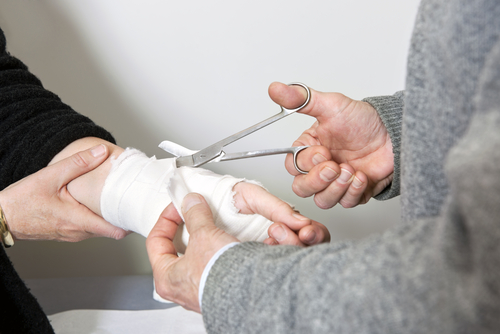
Bandages manufactured of non-biodegradable products can cause water pollution if flushed. The adhesive’s stickiness means it can also bind to other objects, making the clog even bigger. Bandages should be thrown away in the trash to avoid these complications.
8. Expired Medicines and Other Dangerous Substances
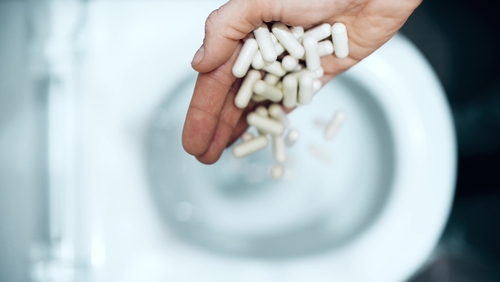
Never flush medicines or potentially dangerous home goods (like paint, cleaners, acids, and other chemicals) down the toilet to help avoid water pollution. The best method for disposing of old or expired medication is to dump it off at a medication take-back location. Find a pickup service in your area that can securely assist in disposing of domestic hazardous trash.
9. Hair

Even though it’s made of natural elements, it doesn’t imply it won’t bring harm to the ecosystem. That’s the unfortunate truth. Hair helps form enormous balls that cause significant clogs in the sewer system and trap unpleasant aromas in the plumbing. Keep your brushes and combs out of the bathroom sink and the toilet when cleaning them.
10. Cigarette Butts
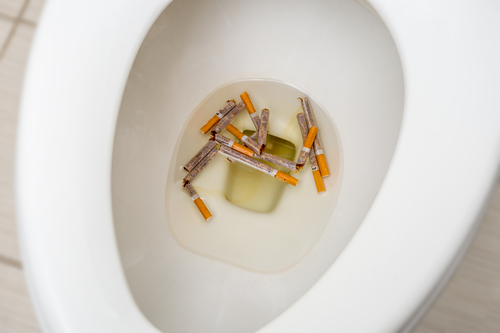
Cigarettes are another common source of pollution that can have terrible effects on aquatic life. And sometimes, even after flushing, cigarette butts remain in the toilet. It may leave the next user of the restroom with an unwelcome greeting. Put out cigarettes in an appropriate way and then throw them into the trash can.
11. Cooking Oils and Chewing Gums
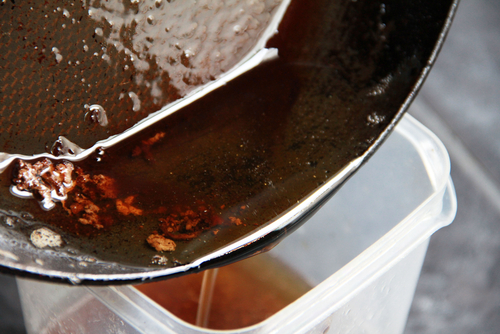
Chewings gum, as a cohesive product, is similar to glue. And it becomes clogged in the pipes, obstructing the smooth flow of wastewater. The gum must be wrapped in paper and put into a trash can.
Similarly to how you shouldn’t pour cooking oil down the sink, you also shouldn’t flush it down the toilet. Cooling causes grease to solidify, making it thicker and potentially obstructing pipes. Consider how such a scenario would affect your sewer line, so better avoid it.
12. Dental floss

Dental floss is flushed down the toilet and mixed with hair, paper towels, and other items to create big balls that clog sewers and pipes. Flushing the toilet with dental floss can do more than just clog your pipes; it can also pollute the environment. When dental floss is flushed, it acts like a net, collecting and keeping other trash. It can also wrap all over your sewer system.
What Should You Not Flush Down The Toilet – Conclusion:
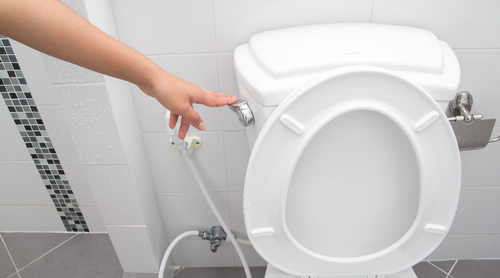
You must only flush toilet paper, water, wastewater, and human waste into the toilet. Any other objects can cause clogged pipes and costly plumbing repairs. If sewage overflows into the public, there is a strong probability that it will enter our waterways. They are blocking beaches, damaging marine life, and rendering some seafood unhealthy to consume.
You are responsible for paying for any necessary repairs if the plumbing system in your house clogs. The users like your neighbors, your family, and you are in the way responsible for additional utility costs. You will spend time, effort, and money if such a situation is not avoided. Therefore, it is preferable to avoid it than to deal with a problem in the future.

